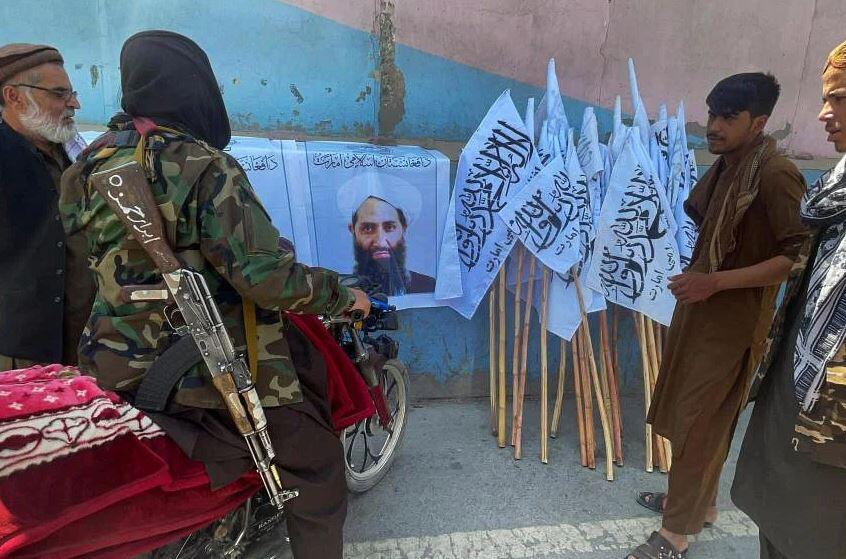According to insiders, various groups within the militant organisation are surrounding themselves with loyal fighters as a result of the widespread instructions issued by the Taliban to limit the rights of women. This has worsened the splits that already existed within the organisation.
In addition to directives issued in 2022 prohibiting women from visiting gyms, amusement parks, and public baths, the Taliban banned women from attending universities and restricting their ability to work in non-governmental organisations last week. Additionally, the Taliban limited women’s ability to travel more than 70 kilometres without the accompaniment of a male guard.
The actions have caused indignation among Afghans and the world community as a whole, with several friendly Islamic nations even voicing their disapproval to the initiatives.
According to the sources, who asked not to be identified because they were discussing sensitive matters, the conservative decrees were ordered by the rarely seen Supreme Leader of the militant group, Haibatullah Akhundzada. Akhundzada rules from the city of Kandahar in the south of Afghanistan and issues edicts via a religious council of Taliban clerics. He rules from Kandahar.
A group of Taliban leaders, led by Defence Minister Mohammad Yaqoob, the son of the group’s late founder Mohammad Omar, and Interior Minister Sirajuddin Haqqani, the leader of the Haqqani Network, who is on the Federal Bureau of Investigation’s most-wanted list for terrorism, are reportedly fighting back against Mullah Akhundzada.
According to the sources, their efforts to meet with the Supreme Leader in order to resolve the situation have, up to this point, been unsuccessful.
Kabul, the nation’s capital, is a stronghold for Mullah Yaqoob and Mr. Haqqani, while Kandahar serves as Mullah Akhundzada’s home base. Kandahar was the origin of the Taliban movement in the early 1990s.
Although Afghanistan’s national army is comprised of Taliban soldiers and some troops from the US-trained force that was defeated in 2021, many of the top ministers in the current government are former warlords or leaders of militias who still command the loyalty of thousands of fighters. This is despite the fact that Afghanistan has a national army.
Because of their roles in government, younger Taliban commanders like Mullah Yaqoob and Mr. Haqqani have access to military equipment worth billions of dollars that was abandoned by the American forces. These items were left behind in Afghanistan.
According to our sources, the majority of Mullah Akhundzada’s adherents come from the armed local militias that operate in Kandahar as well as like-minded religious leaders who also command their own forces.
A spokesperson for the Taliban-run government named Mr. Bilal Karimi disputed that there was any “disunity and division among Taliban officials” about the directives on women. He also said that he was unaware of any efforts made by Mullah Yaqoob and Mr. Haqqani to meet with Mullah Akhundzada.
Mr. Karimi said this in a phone conversation by saying, “Every member of the Islamic Emirate respects and obeys the directives of the Supreme Leader.” It is impossible to overcome the strength of obedience.
However, Mullah Yaqoob and Mr. Haqqani have presented contrasting viewpoints on a variety of matters pertaining to the rights of women.
Enayatullah Khwarizmi, the spokesperson for the Ministry of Defense, refused to comment on Mullah Yaqoob’s opinions on the most recent limitations imposed on women.
In an interview that took place in the month of August with National Public Radio, Mullah Yaqoob said that he was serious about laying the groundwork for all females to return to school.
Neither of the two spokespersons would comment on reports that the Supreme Leader Akhundzada and the two ministries are at odds with one another.
There have been previous instances of rifts opening up among the Taliban due to disagreements on topics such as the treatment of women’s rights.
According to a story that appeared in the New York Times earlier in 2022, a Shi’ite Taliban commander named Mahdi Mujahid cut connections with the leadership of the organisation and organised an insurrection in his northern home town of Balkhab.
This led to weeks of intense combat, which continued until Mujahid was captured when he was trying to escape to Iran. He was then put to death.
When the Taliban gained control of Kabul in 2021, the leaders of the organisation attempted to reassure the world that they would have a greater regard for the rights of women, including ensuring that they were given the opportunity to get an education.
However, Mullah Akhundzada made comments earlier in 2022 that indicated at a return to the severe policies that were in force in Afghanistan during the time when the Taliban dominated the country in the 1990s.
In Afghanistan, there have been male voices raised in opposition to the decision to exclude women from enrolling in higher education institutions.
As a result of the decision to prohibit female employees, several humanitarian aid organisations, including the largest group operating in the country, the International Rescue Committee, have suspended their operations. This has the potential to disrupt the delivery of humanitarian aid to millions of people during the harsh winter months.
According to Mr. Graeme Smith, a senior consultant with the International Crisis Group’s Asia Programme who focuses on Afghanistan, a number of Taliban officials send their families, including their daughters, to countries such as Pakistan, Qatar, or the United Arab Emirates in order to receive an education.
According to what he had to say, “The Emir’s desire for a more conservative set of policies does challenge the historic cohesion of the Taliban.”
“The Emir personally desired a more conservative agenda, and he established his rising authority by overruling factions of the Taliban who were more pragmatic.”

